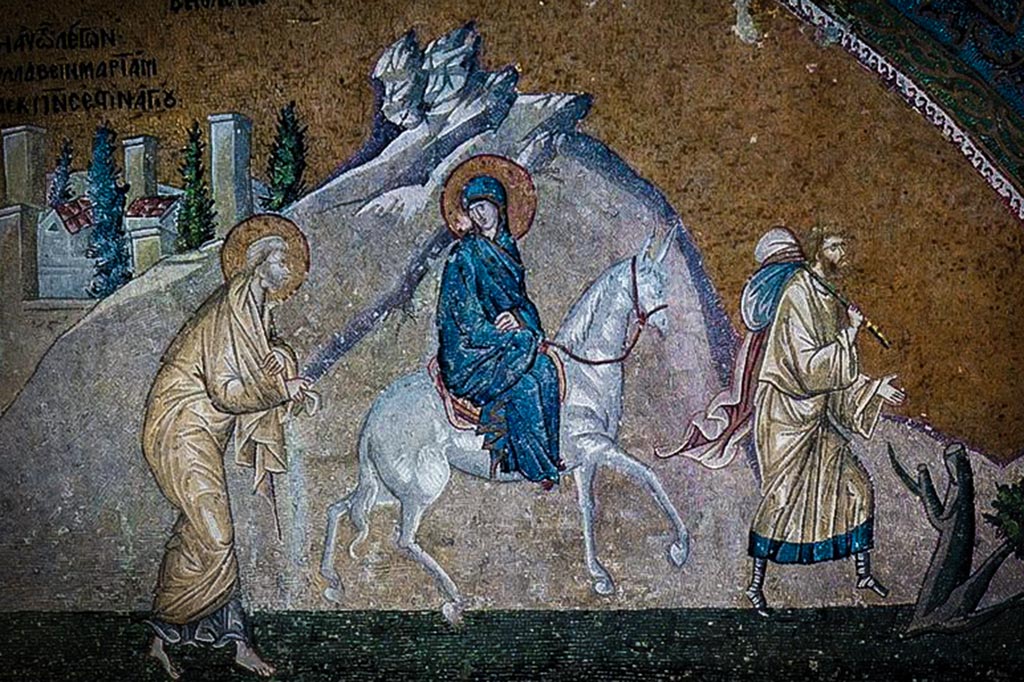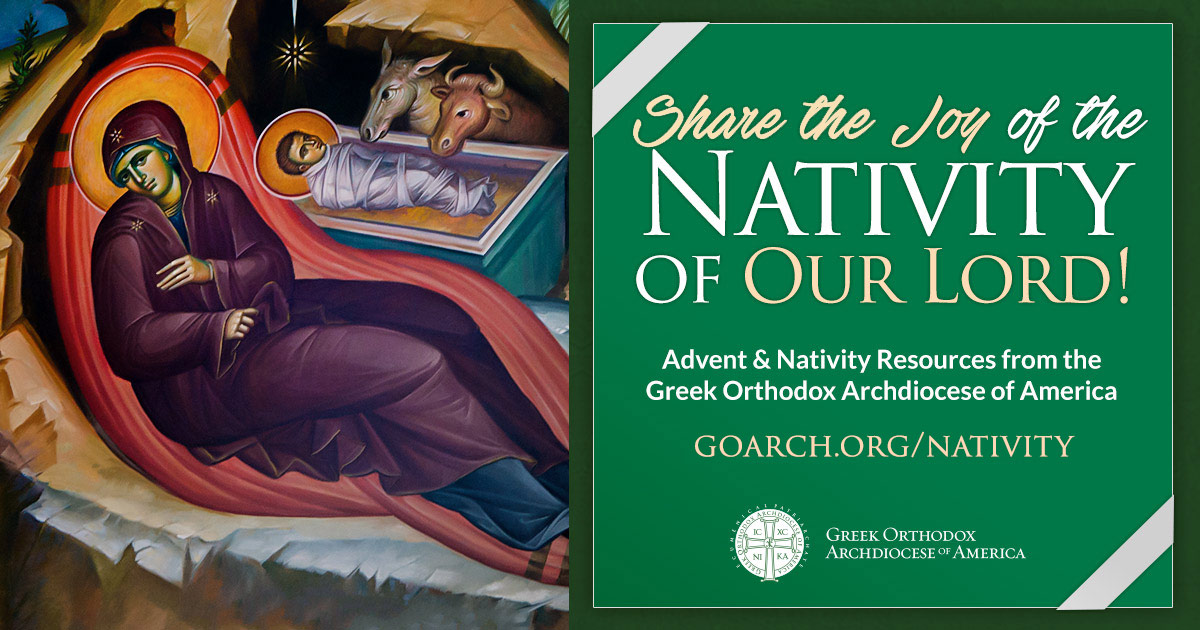Now faith is the assurance of things hoped for, the conviction of things not seen. (Hebrews 11:1)
We are about to take a journey. Whether one is a devout Christian or doesn’t know Christ at all, we are all about to take a journey that will see Christmas decorations go up, lines at the malls get long, and stress levels go up. Such is the modern celebration of Christmas.
But there is another journey, a journey of faith that some choose to take and others choose to ignore. The journey of faith is a daily choice to follow Christ. Each year on November 15, as we begin the Orthodox Christian season of Advent that journey takes on a new focus. For forty days, we prepare to celebrate the Nativity of Christ. We fast. We pray. We worship. When the Feast of the Nativity comes, there is something to celebrate. Most important, however, is that when the Feast of the Nativity has passed, there is something more than gifts to return, decorations to take down, and credit cards to pay off. There is joy—and joy is what overcomes sadness. There is hope—and hope is what overcomes sorrow.
So, I invite you to share a meaningful journey to Bethlehem this year. Over the next fifty-four days I invite you to immerse yourself in the scriptures and services. We have the opportunity to study the characters in the Christmas story in a way that perhaps you haven’t thought of them before. In studying and praying over the scriptures, having identified fifty distinct topics from only a few chapters of scripture, I saw things in scripture that I never before slowed down to appreciate. The hustle and bustle of the season has even permeated how I’ve read these most important passages.
People greet the feast of Christmas in different ways—some are happy to see it come, and others dread its coming. And when Christmas is over, some are sad to see it go, while others are relieved. I feel blessed that, as an Orthodox priest, I celebrate Christmas all year round. Each time I celebrate the Liturgy and prepare the Gifts that will become the Body and Blood of Christ, I gaze upon an icon of the Nativity at the table of preparation (Prothesis) in the Holy Altar of the church. The first prayer of the service of the Preparation of the Gifts (the Proskomide) at every Eucharistic service (and we celebrate the Eucharist in a service called the Divine Liturgy over one hundred times a year) is a hymn of Christmas:
O Bethlehem, prepare, Eden is opened unto all. And be ready, Ephrata, for the Tree of life has in the grotto blossomed forth from the Virgin. Indeed her womb is shown to be spiritually a Paradise, in which is found the God-planted Tree. And if we eat from it we shall live, and shall not die, as did Adam of old. Christ is born, so that He might raise up the formerly fallen image. (Trans. Fr. Seraphim Dedes.)
As I cover the Bread on the Paten with a metal covering “asterisk,” which looks like a four-point star, I offer a prayer based on the Gospel of Matthew 2:11: “And the star came and stood over where the child was with Mary His mother.” (The prayer is found in The Order of the Divine and Holy Liturgy by Holy Cross Seminary Press).” The service concludes with the dismissal from the Nativity services, “May Christ our True God who was born in a cave and lay in a manger for our salvation . . .” So, it’s always Christmas in the church. The lessons of the Nativity are things we should meditate on all the days of our lives.
As we pass this Holy time of preparation, I humbly ask for your prayers. I humbly offer mine as well.
O Bethlehem, welcome the Mother-city of God. For she is coming to give birth to the never-setting Light. Angels in heaven, marvel; people on earth, give glory. Magi from Persia, bring your triply precious gift. Shepherds in the field, sing the Thrice-Holy Hymn. Let everything that breathes praise the Lord who does all things. (From the Matins on the Feast of St. Andrew, November 30. Trans. Fr. Seraphim Dedes.)
We encourage you to participate in this journey guided by Fr. Stavros in two ways:
- Purchase the book "Let All Creation Rejoice: Reflections for Advent, the Nativity and Epiphany" by Fr. Stavros N. Akrotirianakis
- Visit The Prayer Team Daily Devotion available through the Orthodox Christian Network
About Advent or the Nativity Fast
Most Christian churches have a period of time called “Advent.” Advent is conventionally observed as a four-Sunday period before the feast of Christmas. In the Orthodox Christian Church, Advent is observed for forty days beginning on November 15. In the Orthodox Church the Feast of Christmas is called by various names including “The Nativity” and “The Incarnation.” The term “Christmas” is seldom heard in Orthodox Christian circles. The Feast of the Nativity is celebrated for twelve days culminating in the Feast of Epiphany, or Theophany, as it is sometimes called.
About "Let All Creation Rejoice"

The book "Let All Creation Rejoice" has been written to be read on a daily basis from November 15 (the beginning of the Orthodox Advent season), through January 7 (the Feast of St. John the Baptist which falls one day after the Feast of Epiphany, which is held January 6).
The reflections of Advent focus on a verse or two from the scriptures on the Nativity, taken from Matthew 1 and 2, and from Luke 2. The reflections that follow the Feast of the Nativity focus on other scriptures related to the early life of Christ, culminating in His Baptism and the endorsement of St. John the Baptist.
Each reflection concludes with a hymn or prayer from Orthodox Christian services held for the Feasts of the Nativity and Theophany.
About Fr. Stavros
Fr. Stavros Akrotirianakis is the Proistamenos (Presiding Priest) at St. John the Baptist Greek Orthodox Church in Tampa, FL. The Prayer Team Ministry, a daily reflection authored by Fr. Stavros which began in February 2015, has produced two books, "Let All Creation Rejoice: Reflections for Advent, the Nativity and Epiphany" and “The Road Back to Christ: Reflections on Lent, Holy Week and the Resurrection."

